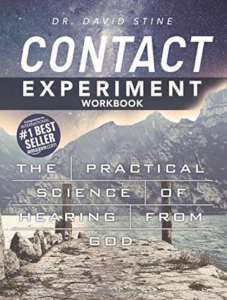After recently watching a Crappy Childhood Fairy video and reflecting on my own experience in an ACA group based on the original AA 12 step model, I think there are key aspects to include in group meetings focused on overcoming and maturity.
- Have a Culture of Vulnerability and Truth
- Confession and testimony - get it all out there (dumping your story, good and bad)
- Truth replacing lies via the Word
- Enlist the Support of Others
- Discipleship by those who have overcome – have a designated “Silas” or battle buddy, as referenced in the military (e.g. duties may include calling each other at set time, incident, and frequency)
- Ask for someone to come along side you who is somewhere you want to be or a little further along than you even if there are areas in which they are not as strong as you
- Provides custom support per person (not a “program”)
- Have a Culture of Respect and Clarity
- No set leader - rotate jobs of the meeting
- Clear and articulated how to act in the group - take turns, no “crosstalk”: not a time for lecturing or advertising, etc.; biblical
- Speak thoughtfully - consider the new and vulnerable, what will benefit the whole
- Maintain boundaries - leave conversation shared in the group in the group, offer and don't mandate any advice be taken
- No gossip – share what you know, not what you suppose; focus on your maturity (the only part you can control!)
- Intentional inclusivity vs exclusivity
- If going out after, make invitation inclusive to all current participants
- Time limits in sharing
- Meetings as often as needed (every night for instance, if people desire) - fellowship, relieve loneliness
- Learn from other groups for participation and leadership (see following resources)
- Goal: feel like you belong, gain connectedness, see whole-person growth in yourself and others
This experience is informed by the resources of the Conquer Series focused on overcoming pornography addiction (but really applies to every addiction or numbing behavior), listening to Pure Desire podcasts (stems from groups created for the previous), and reading Samson and the Pirate Monks by Nate Larkin, which describes additional support groups for this issue and the pro/cons of their experience with the 12 Steps. I was inspired to research porn addiction after a Marine buddy of mine shared his struggle with me and needed help.

Some things I don’t specifically like about 12 step groups though (from research inspired by living with a roommate of mine who was involved in AA):
- Tendency for stagnation
- Supporting ongoing weakness and lack of overcoming (with declarations of such)
- Check in the box - facade of doing something about your problems
- Do not have to have the will to change; you can still attend regardless
- Not necessarily connecting to the Creator (calling it a “higher power” which inspires idolatry, including self as one's own idol)
AA and the 12 steps are also derived from the spiritist-leaning Oxford Group in the 1930’s that resulted in the books: For Sinners Only by A.J. Russell and God Calling by two unknown women who acknowledged it was written via channeled spirits (later to inspire Sarah Young’s empire of Jesus Calling books, also admittedly channeled).
The philosophy of such things as the AA “serenity prayer” is also connected to the surprisingly ego-centric stoicism of Greek philosophy (remember: it is better to obey than sacrifice).
Interesting that this applied to Saul when he would also later (I Samuel 28:7) consult a medium or spiritist, and would later die for breaking YHWH’s command (Leviticus 20:27, Deuteronomy 18:11) in engaging in this practice (I Chronicles 10:13). I think it’s important to note that he was also a people pleaser (I Samuel 15:30).
My original experience with the 12 steps was with AA through one of my Master’s degree hands-on assignments. At the time, I probably actually needed it, but couldn’t admit it. I was on a second enlistment in the Marine Corps in Iraq and a functional alcoholic and workaholic. The common denominator between those was a lack of caring about myself, and by extension, a lack of real care for others. Don’t get me wrong, I have always cared about people in the conventional sense and have a lot of empathic characteristics (this is the number one reason why I get inspired to research so much: to help others). But according to the Word, you cannot truly love others without it extending out of a real love for yourself. In community as in marriage, you take care of those who will have a direct impact on your own well-being; the damage of your spouse (injury to body or reputation or income, let’s say) has a direct impact on you. And this is how tight our community with fellow believers should be.
When it says we are “lovers of ourselves” in a derogatory way in the Word, we see that this kind of “love” stems from fear: fear that we’re not “enough” so we compensate: the focus is trying to people please instead of truly caring for yourself and others, such as would a good parent for their child. This should be a nurturing love that both cares and corrects. It’s balanced. And its outcome is health and not maladaptive survival mechanisms (like we see in all addictions and other behaviors that numb us to the reality that makes us afraid – instead of courageous in the face of fears). In some circles, this is called “re-parenting” yourself. See Tim Fletcher’s video about this.
He also has a good video series about “spiritual bypassing”, a term used when we try to spiritually justify our lack of work to grow up and mature, as we are called to do (I Corinthians 14:20, II Corinthians 13:9, Ephesians 4:13, Philippians 3:15, Colossians 4:12, and Hebrews 5:14 are only a few references).

II Timothy 3:2 speaks of “lovers of self”, which also means selfish when you look into the Greek meaning of the word philautos used here. There is a search of meaning and what might fill or satisfy you implied here. Maturity means we recognize these things that lure us in the world – temptation to act on our desires – that do not fill us up or satisfy. And we can no longer afford to be tripped up by these lesser things. In prophecy we see what comes quickly:
Let us not be like the fallen Watcher beings at the beginning of our earth history who passed on their lesser, worthless knowledge (Genesis 6, Enoch 6-8, 16)!
This brings us to why we need these groups – they aren’t just a good idea. We need to support each other in maturity and real love for ourselves, each other, and our Elohim …in YHWH’s Way.
If you attend a 12-step group, do not take this as judgement against you. I think there is still some usefulness for the things we learn in the world. But once we know what is better, and “good” as defined by the Word, I believe we should do better and create things to help each other more in line with it. I currently still attend an ACA group and realize that, just like the personality tests that originate from occultists like Carl Jung, there is some true knowledge there of people and their problems based on the gathered data of those people via research (such as the research done on the “laundry list” of issues experienced by adult children of dysfunctional homes). But there are going to be aspects that are not godly, and we need to learn to test those things. Do as the idiom I hear constantly these days: chew the meat and spit out the bones. I just hope to have more meat than bone-
More on the 12 Steps history and my experience:
Even the 12 steps originator Bill Wilson is said to have channeled the 12 steps. All these channelings are done via the occult practice of automatic writing, which even my own church at one time advocated. I even tried it until something prompted me to read the Amazon reviews of the book, that just so happened to be written by the pastor (see photos from Amazon below). At the time I had no awareness of the devil’s wiles via the occult and witchcraft. I no longer attend this church, but it has since dissolved and the building was even demolished. The fruit seems clear to me.




Test the spirits: Is the miracle you are experiencing leading you to another god? Do we prefer miracles, such as gaining sobriety, instead of eternal life? This self-centric tendency goes back to the spirit of the age where any god or higher power is fine…just don’t push it on anyone as the only right one.
I will get more into “Christian” channeling in another post soon – The Deception of Christian Mysticism Today.
My partner and I stumbled over here from a different web page and thought I might check things out. I like what I see so i am just following you. Look forward to exploring your web page for a second time.